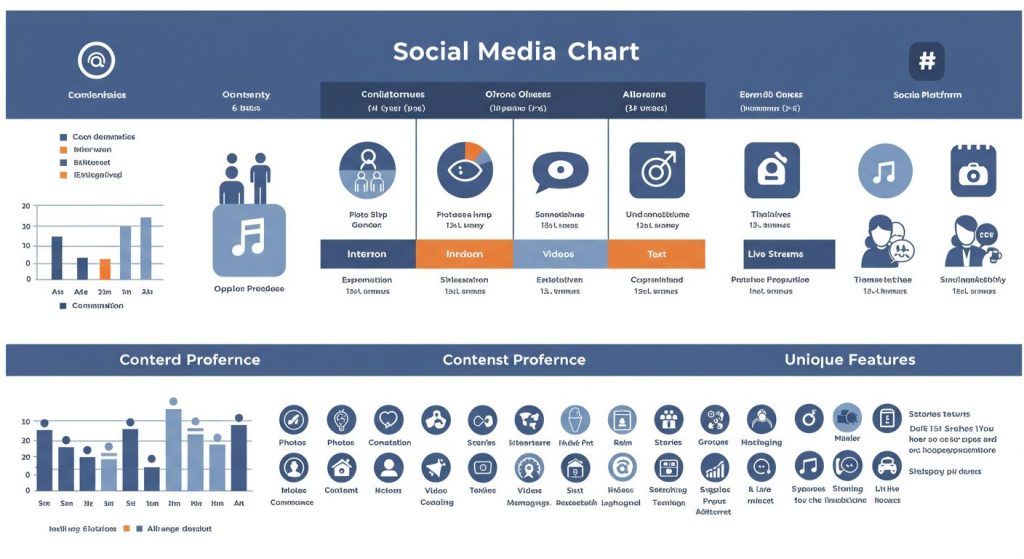Most Businesses want to go online and conquer the world as soon as they are ready to launch, they envisage huge acceptance and engagements as soon as they setup shop online, but little do they know that there are complexities to using social media especially for building businesses or brands, or getting people to align with your brand, sometimes it could be a herculean task simply because of the most basic mistake such individuals make “CHOOSING THE WRONG SOCIAL MEDIA PLATFORM”, but this article will help you Choose Your Social Media Platforms for Business.

Table of Contents
Introduction: The Role of Social Media in Business Success
Social media has become an indispensable tool for businesses of all sizes. Whether you are launching a small local bakery or a tech startup, the right platform can significantly influence your brand’s growth, visibility, and customer engagement. Each platform has unique features and audiences, making it essential to align your business goals with the platform’s capabilities. This article explores the best social media platforms for specific types of businesses, highlights their strengths, and identifies platforms to avoid for certain niches.

Choose Your Social Media Platforms for Business by Business Category
The type of business or brand you are launching determines which social media platforms are best suited to your goals. Here are some popular business categories and their ideal platforms:
1. E-commerce and Retail Businesses
For businesses selling physical products, platforms that emphasize visuals and shopping features are critical. Instagram and Pinterest are ideal due to their strong focus on images and product discovery. Instagram’s Shop feature allows users to purchase directly, while Pinterest acts as a digital mood board, encouraging users to explore and buy new products.
Why These Platforms Work:
- Visual appeal attracts shoppers.
- Features like Instagram Reels and Pinterest Pins drive traffic.
- High engagement rates with shopping-related content.
Don’ts: Avoid text-heavy platforms like Twitter for product-centric businesses as they lack the visual appeal needed for showcasing products effectively.
2. Professional Services and B2B Businesses
For professional services such as consulting or software development, LinkedIn and Twitter are excellent choices. LinkedIn allows for networking and thought leadership, while Twitter facilitates sharing industry news and engaging in conversations.
Why These Platforms Work:
- LinkedIn’s professional environment supports reputation building.
- Twitter’s hashtags and trends help in amplifying niche expertise.
- Both platforms encourage collaborations and partnerships.
Don’ts: Platforms like Snapchat or TikTok may not resonate well with B2B audiences focused on expertise and industry credibility.
3. Creative and Visual Art Businesses
Artists, photographers, and designers benefit immensely from platforms like Instagram, Behance, and TikTok. Instagram is perfect for showcasing portfolios, TikTok’s algorithm promotes creativity, and Behance is a dedicated hub for creative professionals.
Why These Platforms Work:
- Instagram’s photo-focused nature aligns with visual art.
- TikTok’s bite-sized videos offer viral opportunities.
- Behance targets industry professionals seeking creative work.
Don’ts: Platforms like LinkedIn may not offer significant visibility to artists who rely on aesthetics rather than corporate networking.
Why Certain Platforms Are Better for Specific Businesses
Each social media platform caters to different demographics, content types, and user intents. Let’s delve deeper into the reasons certain platforms shine for specific businesses:

A. Audience Demographics
Understanding your audience is crucial. Platforms like TikTok cater to younger audiences, while Facebook’s broader demographic makes it suitable for businesses targeting varied age groups. LinkedIn attracts professionals, making it ideal for industries requiring expertise.
B. Content Type Alignment
Each platform thrives on specific content types:
- Instagram: Images and short videos.
- Twitter: Text and quick updates.
- TikTok: Short, creative videos.
- LinkedIn: Articles, whitepapers, and professional achievements.
C. Engagement Features
Platforms like Instagram and TikTok encourage direct interaction through stories, polls, and live sessions, which boost engagement.
Platforms to Avoid Based on Business Type
Not every platform suits all businesses. Using the wrong platform can dilute your brand message, waste resources, and fail to reach your target audience.

E-commerce Businesses
Avoid Twitter if your primary goal is product showcasing—its text-heavy nature may limit the visual appeal of your products.
Professional Services
Snapchat and TikTok may not work well for businesses targeting a serious, professional audience. Their playful, informal nature might clash with your brand persona.
Creative Businesses
LinkedIn is less effective for creative businesses focused on aesthetics and portfolio building.
Conclusion: Strategizing Your Social Media Success
Choosing the right social media platform can make or break your business’s online presence. Align your platform choice with your business goals, target audience, and content strategy to achieve optimal results. By focusing on platforms that complement your brand and avoiding those that might hinder success, you can create a strong and sustainable social media strategy.



